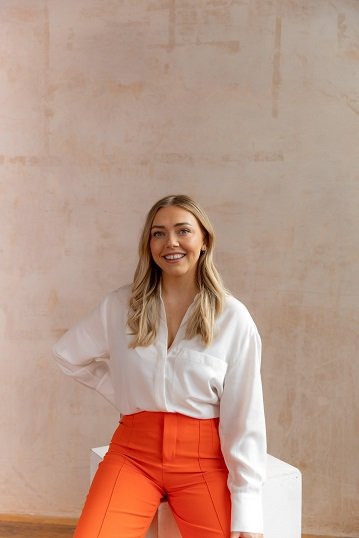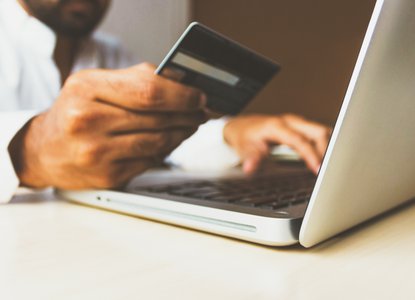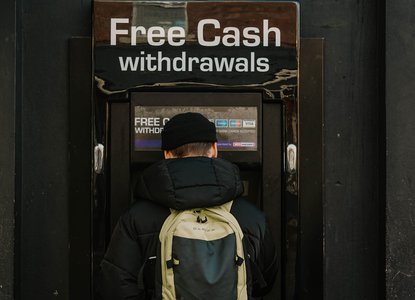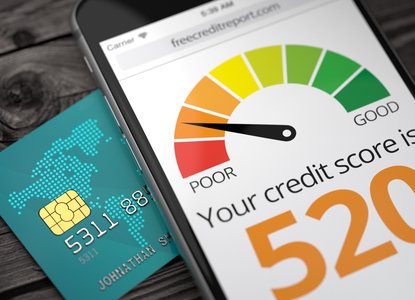Supporting yourself financially
The best budget planners use online banking to manage their money, and most banking apps and websites have lots of helpful information about their services. We've put together a glossary of terms below with some of the most common bank accounts and payment types to give you the information you need to make good choices about your money.
Read the glossary of terms around managing your money and watch the video from financial expert Charlotte, then test your knowledge in our quiz.
For additional support, visit our What's your money mindset? page for advice from financial content creator, Laura Ann Moore about the importance of having a positive relationship with money in order to help you make wise financial decisions.

Jump to quiz
Glossary of money management terms
Interest
When you save your money in a bank account that amount may increase as the bank lends your money to other people, who then pay it back to them with interest. The interest is a percentage added onto the payment. The bank may then pass some of this additional money back to you as interest on your investment with them.
What is a current account?
A current account is the most common type of account and used for managing money day-to-day. You can use your current account to pay bills by Direct Debit or standing order (see distinction below), receive automated payments such as your salary and use a debit card to purchase all the everyday things you need like food, entertainment, products and services. You can also withdraw money from your current account using cashpoint machines.
What is a savings account?
A savings account is another type of bank account where you typically store your money for a rainy day and is a great way to keep the money your don't wish to access everyday. Maybe you want to put aside some money each month to save for a bigger purchase like new clothes and trainers or a holiday - use a savings account to help you as not only will you ring-fence some money but you are likely to gain interest on the money that you have in your savings account. You can only make a certain number of withdrawals from a saving account over a set period of time, and it not usually linked to a debit or credit card facility. You cannot get an overdraft on a savings account.
What is an ISA?
An ISA stands for Individual Savings Accounts and these are a form of savings accounts which tend to have higher interest rate. There are four different types of ISA including a cash ISA which is available to any UK resident aged 16 and over. You can generally withdraw less money per year from an ISA than you can from a normal savings account. ISAs are designed to help you save up for the more significant purchases you are hoping to make in the future, such as a car or a house. The government website has more information about the four different types of ISA and how they work.
Packaged accounts
Some current accounts offer benefits such as car breakdown cover or home insurance for a monthly fee. It is important to assess whether these additional services are worth their monthly cost before committing to this type of account.
Fee-free basic bank accounts
Sometimes a bank may not let you open a current account if you either don’t have a credit rating or if your credit rating is too low. Discover more about borrowing money and understanding credit scores, credit cards and credit ratings here.
What is budgeting?
The term budgeting doesn’t just refer to having enough money to live in the immediate future, budgeting is the tool for ensuring that you build financial resilience and sustainability for your future. Sensible budgeting means that you will have enough money each month to pay for your essential day-to-day items as well as save some money for the bigger purchases that might crop up in the future. It is a good idea to plan your budget for the fun or extra things you want to buy, like a holiday, more expensive clothes or a 'must-see' concert or festival ticket. But it is also a really sensible idea to have a budget plan to give you a financial buffer if something unexpected happens or you need to pay extra for your car, house, bus fare or discover extra or unexpected costs. As we have mentioned earlier, budgeting will also help you build financial resilience so that you will feel more in control if something unexpected impacts your life and financial situation.
Income
The word 'income' refers to the amount of money you receive each month through wages or investments.
A Debt-to-Income Ratio tool will help banks work out the support they can provide to you in terms of loans and mortgages.
What are outgoings?
Your outgoings are the combined total of all the money you pay out each month, including rent, food, clothes, petrol – so the total of all your expenses.
Compare your income to your outgoings to help you plan a budget.
Take the quiz
More on managing your money
Financial expert Charlotte explains more on budgeting.




